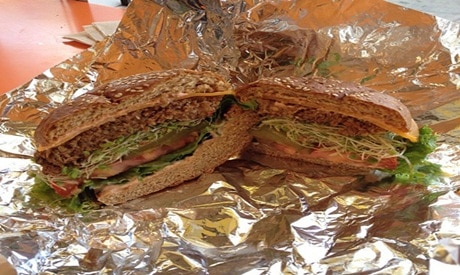
Of all the diets, an organic vegan diet has the smallest environmental impact. If you are a vegetarian or vegan then you likely eat meat analogues – at least occasionally. Veggie burgers and wieners, fake 'pepperoni' for homemade pizza and veggie ground round can found in the vegetarian or produce section of your local supermarket.
A meat analogue is defined by Wikipedia as "a meat substitute, mock meat, faux meat, or imitation meat, approximates the aesthetic qualities (primarily texture, flavor, and appearance) and/or chemical characteristics of specific types of meat." You may think that eating meat analogues is better for the environment. However, there are environmental impacts of meat analogues that compare to meat, said Atze van der Goot associate professor of the Food Process Engineering department at Wageningen University. While speaking at the European federation of food science and technology annual conference, van der Goot said that water and energy are not used efficiently during the production of meat analogues.
"Due to the inefficiencies in the process to make meat alternatives, we lose completely the environmental benefits," said van der Goot. "Partial fractionation might be sufficient, and partial fractionation is of course more energy efficient."
Jacqueline Berghout, also from Wageningen University's Food Process Engineering department, also spoke. "First we take the whole product apart and then we add [the constituents] together to make a product out of it," Berghout said. "This is because we are focused on the purity of the fractions. We can question the sustainability of the protein isolation process…Is it really necessary to make these pure ingredients? No food consists of one single ingredient."
Berghout suggested a way to make the production of meat analogues more environmentally friendly. "We skip the defatting step and keep the protein in wet state, so we therefore use less water, we use less energy and less chemicals…The protein is not as pure but it may have some other functionalities."
Even if meat analogues, which are mostly made from soy, can be produced more environmentally friendly, there are health concerns associated with eating fake meats. Most are made with soy – a controversial ingredient (does it or doesn't it raise estrogen levels?) and if the soy is not organic, it's genetically modified. Meat analogues often contain high levels of sodium comparable to their 'real meat' counterparts, and many include MSG (one of The Scary Seven) as an ingredient.
Read labels carefully and look for products containing only the least processed, organic ingredients that are low in sodium. Better yet, stick to real food.
Photo credit: takaokun










